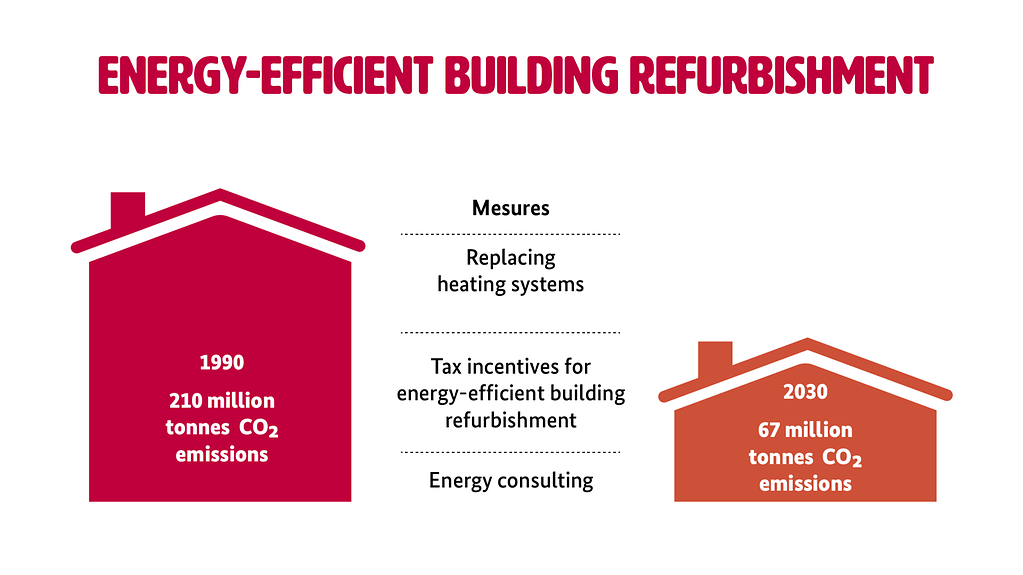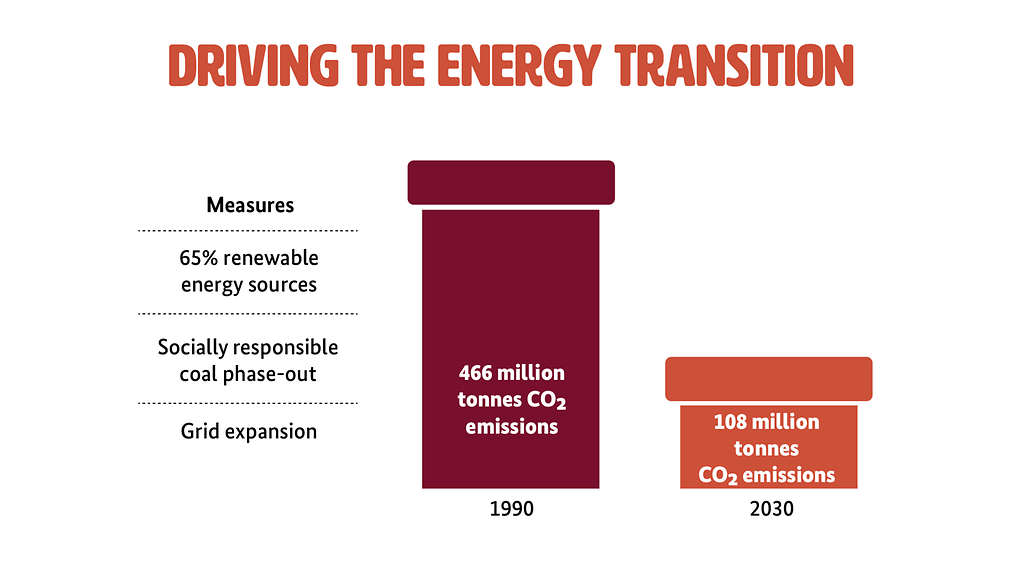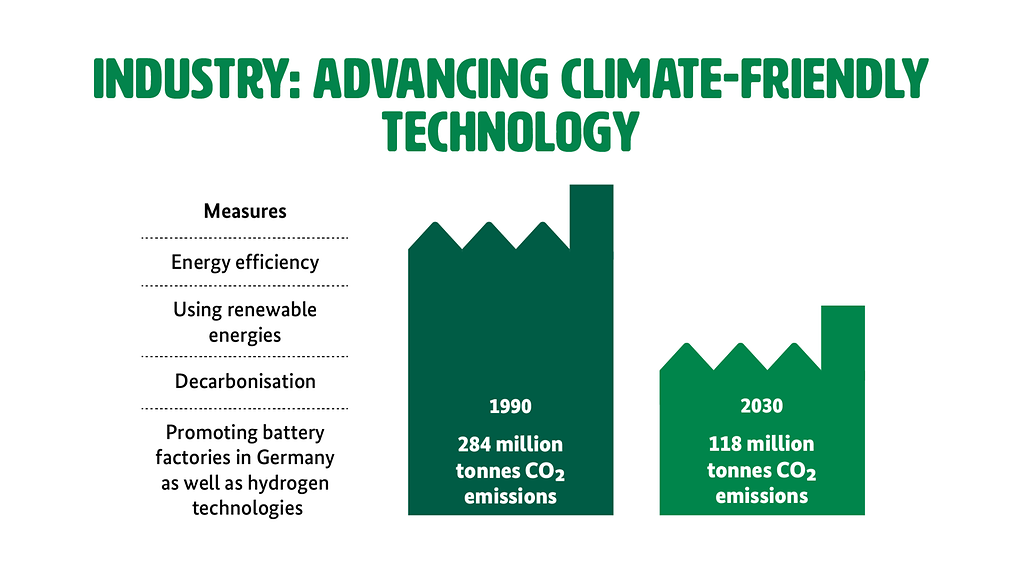2022 Immediate Action Programme
Planning provides for climate neutrality to be achieved in Germany by 2045. The Federal Government has cemented this new goal in the amended Climate Change Act. An additional eight billion euros for coal-free industrial activities, green hydrogen and green steel, as well as energy-focused building refurbishments and climate-friendly traffic are made available through the 2022 Immediate Action Programme.
4 min reading time

The world needs to be greener. This is the direction the Federal Government is pursuing with its 2022 Immediate Action Programme which is designed to achieve climate neutrality in Germany by 2045.
Photo: Getty Images
The Federal Government will provide an extra eight billion euros to promote climate protection measures to reach its new goals. Greenhouse gas emissions must be reduced even more across all areas by 2030: the energy and industrial sectors, traffic, building and agriculture. The amended Federal Climate Change Act requires Germany to reduce its greenhouse gas emissions by 65 percent. The Federal Cabinet included the additional investments in the context of the Immediate Action Programme for Climate Protection in its draft federal budget for 2022.
Over the past two years, the Federal Government has provided more than 80 billion euros for investment related to climate protection in the context of its Climate Protection and Economic Stimulus Programme. Between 2022 and 2025, the government plans to considerably increase funding for projects related to climate policy to more than 93 billion euros.
Over five billion euros for climate-friendly buildings
More than half of the additional funds from the Immediate Action Programme are earmarked for promoting energy-focused refurbishment of buildings and the installation of energy-efficient heating systems. The amended Climate Change Act requires that greenhouse gas emissions in the building sector must decrease by two thirds by 2030 compared to 1990 levels. In this sector alone, the climate-protection goal was slightly missed last year. It is therefore urgently necessary to take action.

Carbon dioxide emissions in the building sector are to be reduced to less than one third by 2030.
Photo: Federal Government
Existing buildings offer great potential for reducing energy consumption and protecting the climate. This is why the Federal Government is using the Immediate Action Programme to promote energy-focused building refurbishments even more strongly over the next two years: an additional 4.5 billion euros will be available for this purpose. From 2023, no more government funding will be granted for heating systems using fossil fuels only.
Another one billion euros from the programme is designated for climate-friendly social housing to be built by 2025, to ensure that climate-friendly living remains affordable.
Moving on from coal and towards green hydrogen
The Federal Government is also planning to invest to support industrial companies to move on from coal power, and start using green hydrogen as a climate-friendly energy source.

Carbon dioxide emissions in the energy sector are to be reduced to less than one quarter by 2030.
Photo: Federal Government
To this end, funds for the Decarbonising in Industry Programme are to be increased to 650 million euros. The intended climate protection contracts are to compensate for higher operating costs for methods producing less or no greenhouse gases.
Further investment grants from the Immediate Action Programme will be available to the steel and chemical industries in particular. Additional funds are also designated for developing new industrial waste heat sources. A total of 860 million euros from the Immediate Action Programme is intended for the industrial sector.
Planning provides for the industrial sector to reduce its greenhouse gas emissions to 118 million tonnes by 2030. The Federal Environment Agency reports a greenhouse gas balance of 178 million tonnes of carbon dioxide for the sector in 2020.
The government also wants to invest close to a hundred million euros for generating and researching green hydrogen, as well as for new heat networks.

Carbon dioxide emissions in the industrial sector are to be more than halved by 2030.
Photo: Federal Government
Bicycles, rail transport, waterways, quick charging
Almost 400 million euros are earmarked to promote cycling as an environment and climate-friendly form of transport. The funds are intended to help states and municipalities to develop an unbroken network of cycle paths with bicycle parking areas at public transport hubs, as well as charging facilities for electric bikes. This funding is based on the new National Cycling Plan.
Around 400 million euros are earmarked for shifting heavy goods transport to waterways and the related infrastructure, and another 200 million euros are to be used for modernising the railway system. A further 200 million euros are planned for quick-charging hubs in inner-city neighbourhoods. This amounts to a total of more than a billion euros to be invested in climate-friendly traffic.
The Federal Administration as a role model
The 2030 Climate Protection Programme and the Federal Climate Change Act require the Federal Administration to act as a role model. The plan is for the Federal Administration to operate climate-neutrally by 2030. At least 50 percent of vehicles used by the highest federal authorities are to be replaced with electric or hybrid models by 2025. An additional around 50 million euros from the Immediate Action Programme are available for measures such as installing charging stations on the federal premises.